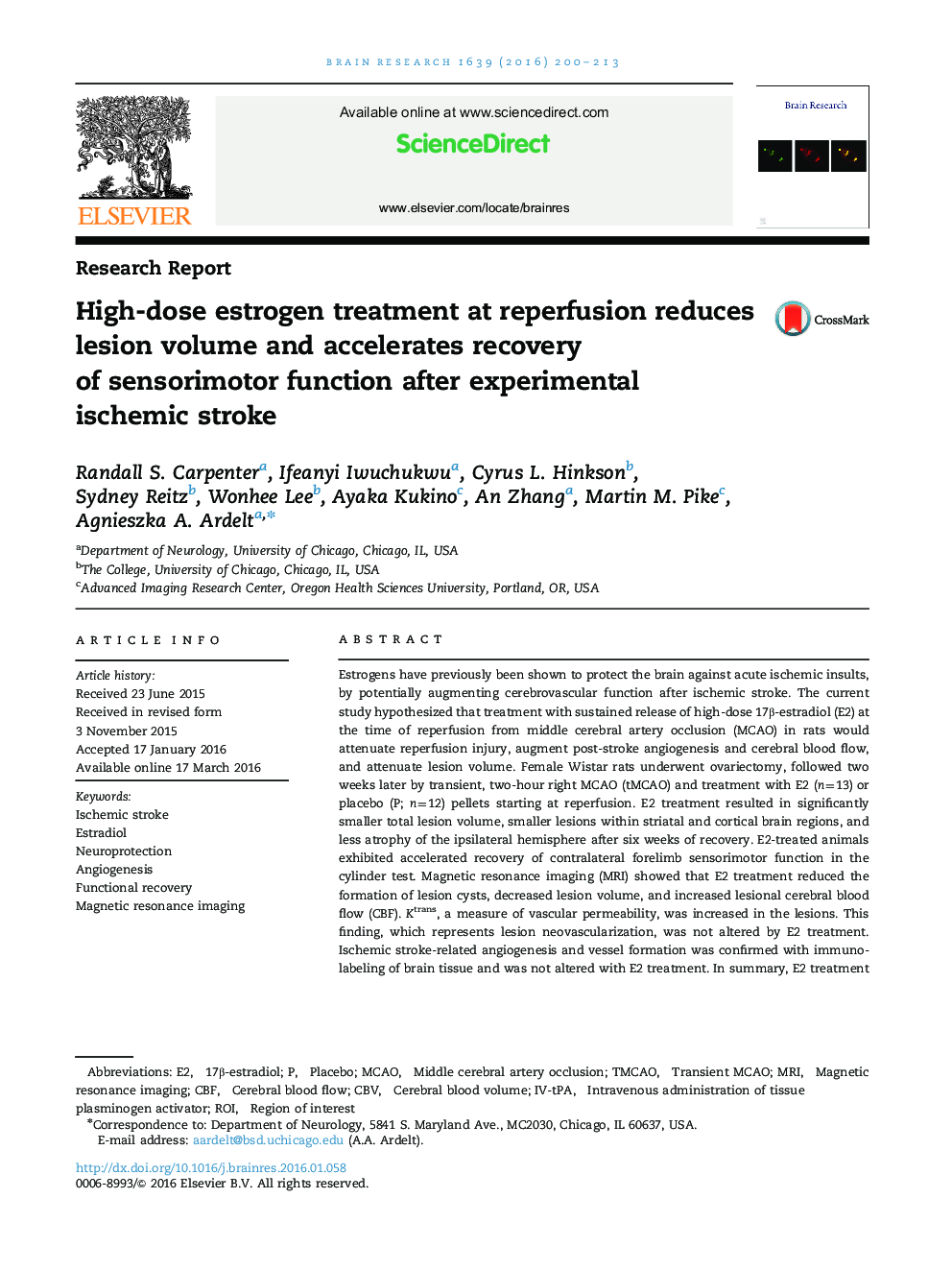| Article ID | Journal | Published Year | Pages | File Type |
|---|---|---|---|---|
| 6262587 | Brain Research | 2016 | 14 Pages |
â¢High-dose estradiol treatment was beneficial after experimental ischemic stroke.â¢Estradiol treatment attenuated injury from ischemia - reperfusionâ¢Estradiol treatment accelerated recovery of forelimb function.
Estrogens have previously been shown to protect the brain against acute ischemic insults, by potentially augmenting cerebrovascular function after ischemic stroke. The current study hypothesized that treatment with sustained release of high-dose 17β-estradiol (E2) at the time of reperfusion from middle cerebral artery occlusion (MCAO) in rats would attenuate reperfusion injury, augment post-stroke angiogenesis and cerebral blood flow, and attenuate lesion volume. Female Wistar rats underwent ovariectomy, followed two weeks later by transient, two-hour right MCAO (tMCAO) and treatment with E2 (n=13) or placebo (P; n=12) pellets starting at reperfusion. E2 treatment resulted in significantly smaller total lesion volume, smaller lesions within striatal and cortical brain regions, and less atrophy of the ipsilateral hemisphere after six weeks of recovery. E2-treated animals exhibited accelerated recovery of contralateral forelimb sensorimotor function in the cylinder test. Magnetic resonance imaging (MRI) showed that E2 treatment reduced the formation of lesion cysts, decreased lesion volume, and increased lesional cerebral blood flow (CBF). Ktrans, a measure of vascular permeability, was increased in the lesions. This finding, which represents lesion neovascularization, was not altered by E2 treatment. Ischemic stroke-related angiogenesis and vessel formation was confirmed with immunolabeling of brain tissue and was not altered with E2 treatment. In summary, E2 treatment administered immediately following reperfusion significantly reduced lesion size, cyst formation, and brain atrophy while improving lesional CBF and accelerating recovery of functional deficits in a rat model of ischemic stroke.
